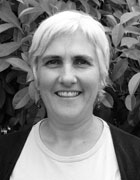A NEW report, which aims at identifying Canberra’s “hidden disadvantage” shows that one in 10 people in Canberra live in a low-income household.

Report co-author, associate Prof of economics, Riyana Miranti says one of the most concerning findings in the report is the number of small areas in the ACT experiencing multiple forms of disadvantage.
“Nearly one in five small areas in the ACT experienced two or more indicators of disadvantage, above the average for Australian capital cities, and one in 10 were higher on three or more indicators. However, the disadvantage in Canberra does not tend to be concentrated in particular suburbs or regions,” says Prof Miranti.
ACTCOSS director Ms Susan Helyar says the report shows that in 2016, over 37,000 Canberrans were living in households with an equivalised annual income under $26,000, including almost 8000 children.
“ACTCOSS knows that it takes astute and vigilant household budget management to cope on a very low income,” she says.
“But even with that, many households are unable to keep a roof over their head, food on the table, heat their home, and keep a car on the road, as well as buy medicine when it is needed.”
ACTCOSS’ analysis over the past three years has found that the cost of living for low-income households in the ACT has risen at a higher rate than for higher-income households.
Executive director of YWCA Canberra and co-chair of the ACT Anti-Poverty Week Committee, Frances Crimmins says Canberra needs to address a range of access and equity issues for its most vulnerable people.
“This includes providing appropriate and affordable housing, quality education from the early years through to college, and to ensure all young people have access to skills and resources to equip them for the jobs of the future,” she says.
CEO of Marymead and co-chair of the ACT Anti-Poverty Week Committee, Camilla Rowland says the report also highlights that the ACT has lower levels of disadvantage than other jurisdictions in Australia.
“However, it’s important to recognise that the ‘salt and peppering’ of public housing in the ACT masks the needs of the people who are most vulnerable in our communities,” she says.
Further information at actcoss.org.au
Who can be trusted?
In a world of spin and confusion, there’s never been a more important time to support independent journalism in Canberra.
If you trust our work online and want to enforce the power of independent voices, I invite you to make a small contribution.
Every dollar of support is invested back into our journalism to help keep citynews.com.au strong and free.
Thank you,
Ian Meikle, editor




Leave a Reply